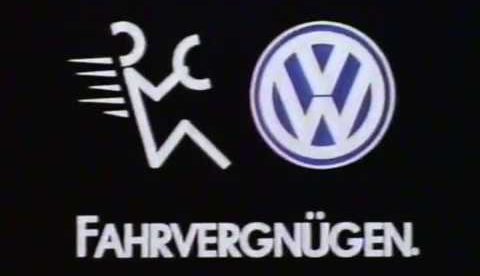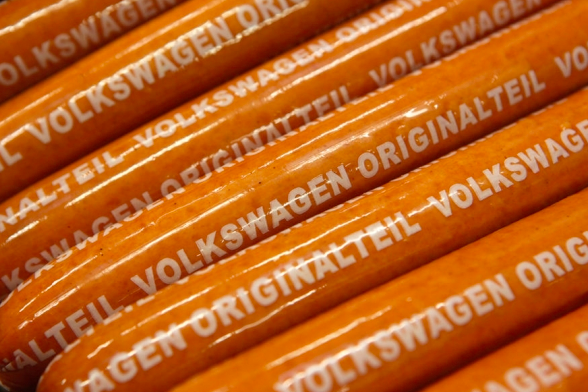The Best-Selling Volkswagen Doesn’t Have Fahrvergnügen

In the 1990s, Volkswagen — the car company — launched a marketing campaign using a made-up German word: Fahrvergnügen. A portmanteau of fahren (“to drive”) and Vergnügen (“pleasure”), the term adds up to “driving pleasure,” but to U.S. audiences at least, it was just a nonsense word which was fun to say. As auto publication Hemmings attests, the word “became a cultural catchphrase.”
Whether the ad campaign helped sell cars, though, that’s debatable — VW struggled to sell cars in the US during the early-to-mid 1990s. But even if it had worked, it wouldn’t have convinced Americans to buy VW’s most popular product. Officially, VW calls that product “part no. 199 398 500 A.” It’s not a car. It’s not even a car part. Take a look for yourself: it’s pictured below.

Yes: the top-selling Volkswagen is a sausage.
Part no. 199 398 500 A, also known as the Volkswagen Originalteil (literally “original part”), is lunch meat. It’s a currywurst, which Wikipedia describes as “a fast food dish of German origin consisting of steamed, then fried pork sausage [that is, Bratwurst] typically cut into bite-sized chunks and seasoned with curry ketchup, a sauce based on spiced ketchup or tomato paste, itself topped with curry powder, or a ready-made ketchup seasoned with curry and other spices.” It’s often served with french fries.
And yes, it really is manufactured by Volkswagen. According to VW’s online newsroom, “since its inception [in 1973], the currywurst has been made in-house by Volkswagen employees. Today, about 30 workers, most of them trained butchers, oversee the process at VW’s flagship plant in Wolfsburg. Three times a week, the plant takes in fresh pork from nearby farms and grinds choice cuts into a precise mix.” In total, the company produces and sells nearly seven million such sausages a year, which per Fortune, is more than the number of cars they sell.
The VW-made sausages are primarily sold to VW employees in corporate cafeterias throughout Europe, and, according to Atlas Obscura, some sausages are “shipped in packs of five to VW dealerships all over the country, who then gift it to customers after a successful sale” and others are available in German grocery stores. They’re a rather common treat throughout Volkswagen’s home nation.
But alas you can’t buy them in the United States or many other parts of the world — restrictions on imports of fresh sausage preclude that. So if you’re not in Europe, you’ll probably have to get your Fahrvergnügen some other way.
Bonus fact: In the UK, sausages are often called “bangers” (as in “bangers and mash,” with “mash” being short for mashed potatoes.) The word “bangers” most likely is a reference to bursting tubes of meat. Per Encyclopedia Britannica, “the term bangers supposedly originated during World War I, when meat shortages resulted in sausages’ being made with a number of fillers, notably water, that caused them to explode when cooked.”
From the Now I Know YouTube Channel: The Federal Bacon Law That Protects Truth in Advertising: There are lots of laws about meat.
